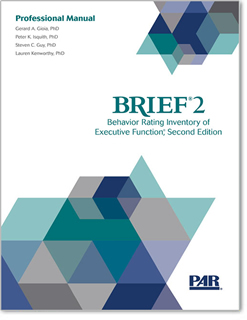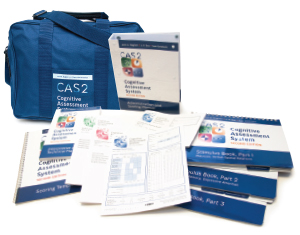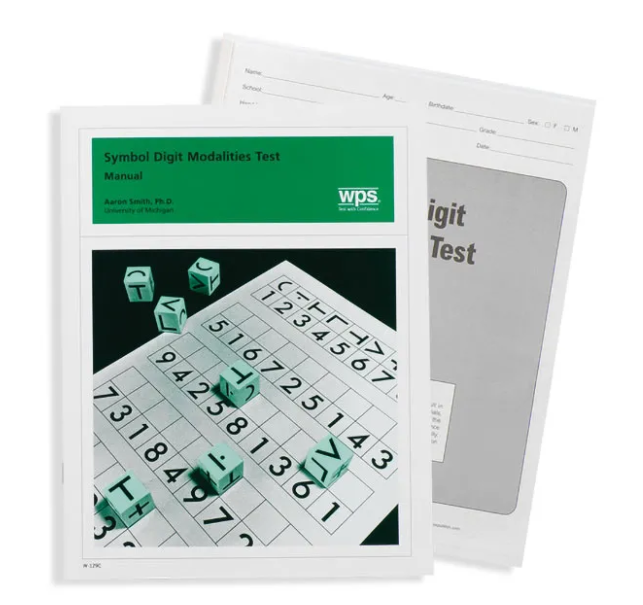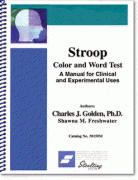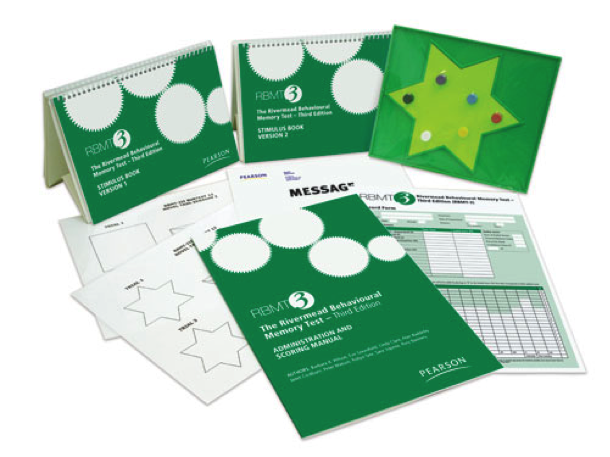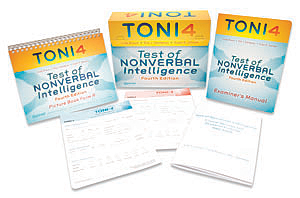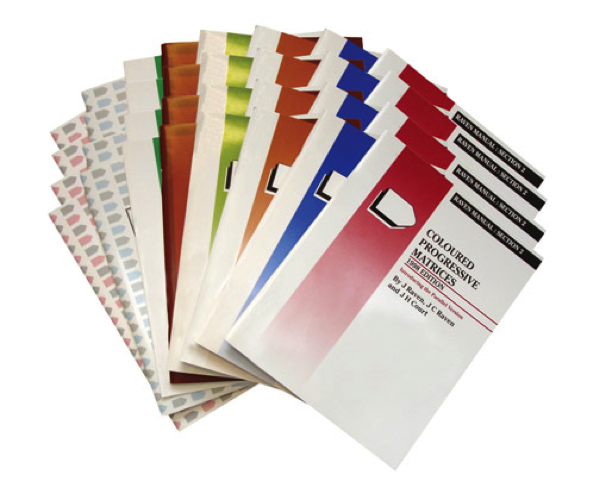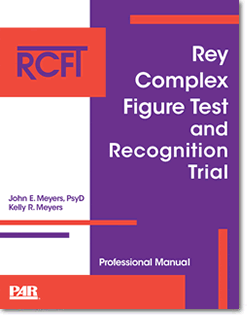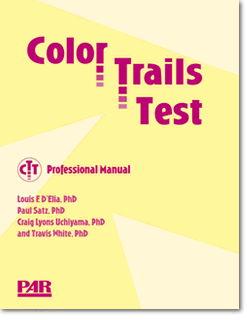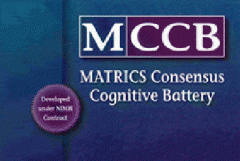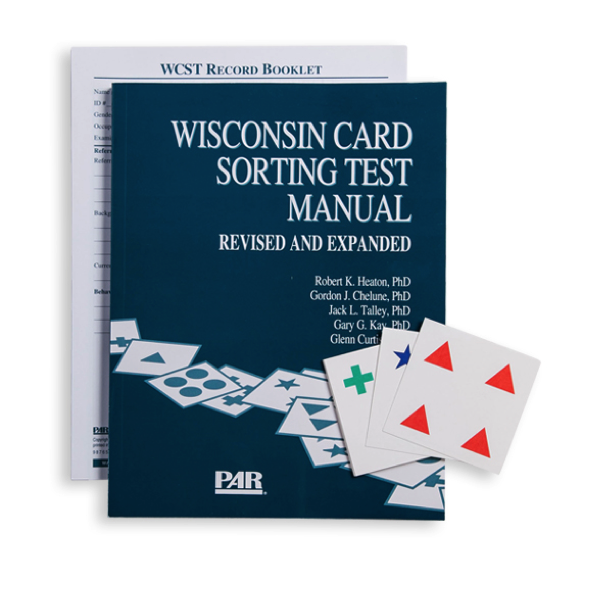

威斯康星卡片分类测验(WCST)
威斯康星卡片分类测验(WCST)(Wisconsin Card Sorting Test(WCST)),提供了一种多功能的神经心理功能测量工具,用于评估毅力(坚持性)和抽象思维,认知灵活性,由于其对额叶功能障碍的敏感性,因此也被认为是执行功能的一种衡量标准。
威斯康星卡片分类测验(WCST),这一流行的测量神经心理障碍方面的方法(工具),最初是为了评估抽象推理和改变认知策略以应对环境变化的能力而开发的。威斯康星卡分类测验(WCST)不仅评估整体规划;有条理的查找;以及能够利用环境反馈来改变认知、引导行为实现目标、调节冲动反应的能力。而且还反映了特定的困难来源 ——低效的初始概念化,缺乏持续性,学习效率低下,这些在区分额叶和非额叶脑病变方面也非常有帮助。
被测试者的任务是按照不同的规则对测试用卡进行排序 ——主要是按照颜色,形式或显示的形状数量排序。在分拣的规则变化时,要求测试者能够快速地反应,改变分拣卡片的方法。
由于被测试者必须在不断变化的条件下,通过不同解决问题的策略来达到目标,所以威斯康星卡分类测验(WCST)可以被认为是一种执行能力的度量,同时也是抽象的推理和神经心理障碍方面的评估工具。
- 开发者:David A.Grant博士和Esta A.Berg博士
- 发布年份:1981年
- 专业指导手册开发者:Robert K.Heaton博士、Gordon J.Chelune博士、Jack L.Talley博士、Gary G.Kay博士和Glenn Curtiss博士
- 作用:提供了一个多功能的神经心理功能测量,评估抽象思维、认知灵活性、执行功能和障碍
- 测试年龄范围:6岁5个月至89岁
- 测试时间:20—30分钟。64卡版本(WCST-64),15分钟
- 测试规则:单独管理的卡片分类任务,测试者必须根据不断地分类标准进行调整
- 评分标准:原始分数,百分位数,T-分数和标准分数
- 测试标准:基于899名正常儿童,青少年和成人的测试样本为依据(原始样本,WCST)
- 格式:纸笔测试,或PARiConnect在线评分
- 资质代码:C
特点和益处
- 完成WCST需要有能力在不断变化的刺激条件下发展和保持适当的解决问题的策略,以实现未来的目标。
- 与其他抽象的测量方法不同,WCST提供了总体成功的客观测量方法,并确定了任务中困难的特定来源(例如:低效的初始概念化、坚持性、未能保持认知定势、跨测验阶段的低效学习)。
- 当与更全面的能力测试一起使用时,WCST有助于区分额叶和非额叶病变。
测试结构
受试者需要根据不同的原则对编号的应答卡片进行分类,并在测试管理过程中改变方法。为了完成这项任务,受试者应该具有足够的正常或矫正的视力和听力,以充分理解说明书并从视觉上辨别刺激参数。
技术信息
- 提供了原始分数到标准化分数、百分位数和T分数的转换。
- 规范性数据来源于899名正常儿童、青少年和成年人的样本。
培训DVD有售
这个内容丰富的DVD教程提供了Robert K.Heaton博士制定的标准化WCST管理和评分程序的详细培训。该培训包对那些刚刚学会使用这种多方面神经心理学工具的人特别有帮助。对于经验丰富的临床医生和心理测量学家来说,这也是一个很好的回顾。
威斯康星卡片分类测验(WCST),套件,型号:0305-NP,包括:
修订扩展版的WCST指导手册,测试用卡片(2套),50份测试记录册。
威斯康星卡片分类测试-64卡版本(WCST-64)
开发者:Susan K. Kongs, Laetitia L. Thompson, PhD, Grant L. Iverson, PhD, and Robert K. Heaton, PhD
威斯康星卡片分类测试-64卡版本(WCST-64),这一简化版的威斯康星卡片分类测试响应了关于患者舒适度、管理式医疗的限制和紧缩的预算的要求。WCST-64卡版本只使用前64个威斯康星卡片分类测试中的测试卡,从而缩短了测试需要的时间,同时保留了原始版本的任务要求。
威斯康星卡片分类测试-64卡版本(WCST-64)套件,型号:4471-KT,包括:
50本测试记录手册; 一套卡片组合; 1本WCST-64使用指南
威斯康星卡片分类测验(WCST)(Wisconsin Card Sorting Test(WCST)),文献索引(部分):
- Clin Neuropsychiatry. 2021 Apr;18(2):86-90.doi: 10.36131/cnfioritieditore20210202.
- eNeuro. 2021 Feb 1;8(1):ENEURO.0392-20.2020.doi: 10.1523/ENEURO.0392-20.2020. Print Jan-Feb 2021.
- Brain Sci. 2020 Oct 1;10(10):699.doi: 10.3390/brainsci10100699.
- Front Psychiatry. 2021 Dec 7;12:789940.doi: 10.3389/fpsyt.2021.789940. eCollection 2021.
- Pol Merkur Lekarski. 2021 Aug 16;49(292):283-285.
- Sleep Sci. Apr-Jun 2021;14(Spec 2):111-117.doi: 10.5935/1984-0063.20200088.
- Anim Cogn. 2021 Jul;24(4):815-828.doi: 10.1007/s10071-021-01483-7. Epub 2021 Feb 8.
- Psychiatry Investig. 2021 Jun;18(6):545-552.doi: 10.30773/pi.2020.0347. Epub 2021 Jun 24.
- Brain Sci. 2021 Apr 21;11(5):529.doi: 10.3390/brainsci11050529.
- Psychiatry Res. 2021 Jan;295:113550.doi: 10.1016/j.psychres.2020.113550. Epub 2020 Nov 4.
- Asian J Psychiatr. 2021 Jan;55:102501.doi: 10.1016/j.ajp.2020.102501. Epub 2020 Nov 25.
- Noro Psikiyatr Ars. 2020 Sep 21;57(4):312-317.doi: 10.29399/npa.24776. eCollection 2020 Dec.
- Sci Rep. 2020 Sep 22;10(1):15464.doi: 10.1038/s41598-020-72407-7.
- Clin Neuropsychol. 2020 May;34(4):720-739.doi: 10.1080/13854046.2019.1631888. Epub 2019 Jun 26.
- Brain Behav. 2020 Aug;10(8):e01729.doi: 10.1002/brb3.1729. Epub 2020 Jul 1.
- J Affect Disord. 2020 Jan 1;260:329-333.doi: 10.1016/j.jad.2019.09.031. Epub 2019 Sep 4.
- Brain Sci. 2019 Nov 29;9(12):349.doi: 10.3390/brainsci9120349.
- Sci Rep. 2019 May 27;9(1):7910.doi: 10.1038/s41598-019-44450-6.
- Psychol Assess. 2019 Feb;31(2):271-276.doi: 10.1037/pas0000670. Epub 2018 Nov 26.
- Handb Clin Neurol. 2019;166:297-314.doi: 10.1016/B978-0-444-64196-0.00016-9.
- Disabil Rehabil. 2018 Aug;40(16):1967-1971.doi: 10.1080/09638288.2017.1323020. Epub 2017 May 11.
- Front Psychol. 2017 May 16;8:793.doi: 10.3389/fpsyg.2017.00793. eCollection 2017.
- Behav Res Methods. 2021 Oct;53(5):2083-2091.doi: 10.3758/s13428-021-01551-3. Epub 2021 Mar 22.
- Neurosci Biobehav Rev. 2017 Dec;83:496-507.doi: 10.1016/j.neubiorev.2017.09.011. Epub 2017 Sep 10.
- 请仔细阅读以下本产品重要说明。
本产品重要说明:
- 语言:英文
- 计分表格:纸张
- 国际惯例:相应的专业人员购买并使用
- 产品主要参数:WCST 或 WCST-64,(Wisconsin Card Sorting Test)
- 原装进口,产地美国
- 尊重并维护知识产权,请按以下列表选择购买使用量表类产品,以实现教学、科研等工作的严谨性和信效度
| 套装 | ||
| 0305-NP | 威斯康星卡片分类测验(WCST)套件 | 电邮询价 |
| 4471-KT | 威斯康星卡片分类测试-64卡版本(WCST-64)套件 | 电邮询价 |
| 量表 | ||
| 0307-RF | 威斯康星卡片分类测验(WCST),测试记录册(一包25份) | 电邮询价 |
| 4473-RF | 威斯康星卡片分类测试-64卡版本(WCST-64),测试记录手册(一包25本) | 电邮询价 |
| 手册 | ||
| 0306-TM | 威斯康星卡片分类测验(WCST),修订扩展版WCST指导手册 | 电邮询价 |
| 4472-TM | 威斯康星卡片分类测试-64卡版本(WCST-64), 使用指南 | 电邮询价 |
| 其他 | ||
| 6322-EQ | 威斯康星卡片分类测验(WCST),培训DVD | 电邮询价 |
| 305B-NP | 威斯康星卡片分类测验(WCST),测试用卡片(2套) | 电邮询价 |
Wisconsin card sorting test—WCST Kit This popular measure of neuropsychological impairment was originally developed to assess abstract reasoning and ability to shift cognitive strategies in response to environmental change. The WCST reflects not only overall ability, but also particular sources of difficulty—inefficient initial conceptualization, perseveration, failure to maintain set, and inefficient learning. It is also very helpful in discriminating frontal from nonfrontal brain lesions. The client’s task is to sort stimulus cards according to different principles—by color, form, or number of shapes shown. Shifts in the sorting principle require the client to quickly alter his or her approach. Because the client must implement problem-solving strategies across changing conditions to achieve a goal, the WCST can be considered a measure of executive function as well as abstract reasoning and neuropsychological impairment. BENEFITS: Provides a versatile measure of neuropsychological functioning, assessing abstract thinking, cognitive flexibility, executive function, and impairment AGES: 6.5 to 89 years ADMIN TIME: 20-30 minutes; 10-15 minutes for the WCST-64 FORMAT: Individually administered card sorting task in which the client must adjust to changing sorting criteria SCORES: Raw scores, percentiles, and T-scores and standard scores NORMS: Based on a sample of 899 normal children, adolescents, and adults (original WCST) PUBLISH DATE: 1981 BY DAVID A. GRANT, PHD AND ESTA A. BERG, PHD WCST Kit Includes all Test Materials; 50 Record Booklets; 1 Manual Wisconsin Card Sorting Test–64 Card Version (WCST-64) by Susan K. Kongs, Laetitia L. Thompson, PhD, Grant L. Iverson, PhD, and Robert K. Heaton, PhD This shortened version of the WCST responds to concerns about patient comfort, managed care restrictions, and tighter budgets. It uses only the first 64 WCST cards, reducing administration time while retaining the task requirements of the original version. WCST-64 Kit Includes 50 Record Booklets; Card Deck; Manual PB-7 Wisconsin card sorting test—WCST Kit Email for Quotation PB-36 Wisconsin Card Sorting Test–64 Card Version (WCST-64) Email for Quotation PB-7A WCST Record Booklet (Pack of 25) Email for Quotation PB-36A WCST-64 Record Booklet (Pack of 25) Email for Quotation PB-7B WCST Manual Email for Quotation PB-36B WCST-64 Manual Email for Quotation
Wisconsin card sorting test—WCST Kit This popular measure of neuropsychological impairment was originally developed to assess abstract reasoning and ability to shift cognitive strategies in response to environmental change. The WCST reflects not only overall ability, but also particular sources of difficulty—inefficient initial conceptualization, perseveration, failure to maintain set, and inefficient learning. It is also very helpful in discriminating frontal from nonfrontal brain lesions. The client’s task is to sort stimulus cards according to different principles—by color, form, or number of shapes shown. Shifts in the sorting principle require the client to quickly alter his or her approach. Because the client must implement problem-solving strategies across changing conditions to achieve a goal, the WCST can be considered a measure of executive function as well as abstract reasoning and neuropsychological impairment. BENEFITS: Provides a versatile measure of neuropsychological functioning, assessing abstract thinking, cognitive flexibility, executive function, and impairment AGES: 6.5 to 89 years ADMIN TIME: 20-30 minutes; 10-15 minutes for the WCST-64 FORMAT: Individually administered card sorting task in which the client must adjust to changing sorting criteria SCORES: Raw scores, percentiles, and T-scores and standard scores NORMS: Based on a sample of 899 normal children, adolescents, and adults (original WCST) PUBLISH DATE: 1981 BY DAVID A. GRANT, PHD AND ESTA A. BERG, PHD WCST Kit Includes all Test Materials; 50 Record Booklets; 1 Manual Wisconsin Card Sorting Test–64 Card Version (WCST-64) by Susan K. Kongs, Laetitia L. Thompson, PhD, Grant L. Iverson, PhD, and Robert K. Heaton, PhD This shortened version of the WCST responds to concerns about patient comfort, managed care restrictions, and tighter budgets. It uses only the first 64 WCST cards, reducing administration time while retaining the task requirements of the original version. WCST-64 Kit Includes 50 Record Booklets; Card Deck; Manual PB-7 Wisconsin card sorting test—WCST Kit Email for Quotation PB-36 Wisconsin Card Sorting Test–64 Card Version (WCST-64) Email for Quotation PB-7A WCST Record Booklet (Pack of 25) Email for Quotation PB-36A WCST-64 Record Booklet (Pack of 25) Email for Quotation PB-7B WCST Manual Email for Quotation PB-36B WCST-64 Manual Email for Quotation
Wisconsin card sorting test—WCST Kit This popular measure of neuropsychological impairment was originally developed to assess abstract reasoning and ability to shift cognitive strategies in response to environmental change. The WCST reflects not only overall ability, but also particular sources of difficulty—inefficient initial conceptualization, perseveration, failure to maintain set, and inefficient learning. It is also very helpful in discriminating frontal from nonfrontal brain lesions. The client’s task is to sort stimulus cards according to different principles—by color, form, or number of shapes shown. Shifts in the sorting principle require the client to quickly alter his or her approach. Because the client must implement problem-solving strategies across changing conditions to achieve a goal, the WCST can be considered a measure of executive function as well as abstract reasoning and neuropsychological impairment. BENEFITS: Provides a versatile measure of neuropsychological functioning, assessing abstract thinking, cognitive flexibility, executive function, and impairment AGES: 6.5 to 89 years ADMIN TIME: 20-30 minutes; 10-15 minutes for the WCST-64 FORMAT: Individually administered card sorting task in which the client must adjust to changing sorting criteria SCORES: Raw scores, percentiles, and T-scores and standard scores NORMS: Based on a sample of 899 normal children, adolescents, and adults (original WCST) PUBLISH DATE: 1981 BY DAVID A. GRANT, PHD AND ESTA A. BERG, PHD WCST Kit Includes all Test Materials; 50 Record Booklets; 1 Manual Wisconsin Card Sorting Test–64 Card Version (WCST-64) by Susan K. Kongs, Laetitia L. Thompson, PhD, Grant L. Iverson, PhD, and Robert K. Heaton, PhD This shortened version of the WCST responds to concerns about patient comfort, managed care restrictions, and tighter budgets. It uses only the first 64 WCST cards, reducing administration time while retaining the task requirements of the original version. WCST-64 Kit Includes 50 Record Booklets; Card Deck; Manual PB-7 Wisconsin card sorting test—WCST Kit Email for Quotation PB-36 Wisconsin Card Sorting Test–64 Card Version (WCST-64) Email for Quotation PB-7A WCST Record Booklet (Pack of 25) Email for Quotation PB-36A WCST-64 Record Booklet (Pack of 25) Email for Quotation PB-7B WCST Manual Email for Quotation PB-36B WCST-64 Manual Email for Quotation
Wisconsin card sorting test—WCST Kit This popular measure of neuropsychological impairment was originally developed to assess abstract reasoning and ability to shift cognitive strategies in response to environmental change. The WCST reflects not only overall ability, but also particular sources of difficulty—inefficient initial conceptualization, perseveration, failure to maintain set, and inefficient learning. It is also very helpful in discriminating frontal from nonfrontal brain lesions. The client’s task is to sort stimulus cards according to different principles—by color, form, or number of shapes shown. Shifts in the sorting principle require the client to quickly alter his or her approach. Because the client must implement problem-solving strategies across changing conditions to achieve a goal, the WCST can be considered a measure of executive function as well as abstract reasoning and neuropsychological impairment. BENEFITS: Provides a versatile measure of neuropsychological functioning, assessing abstract thinking, cognitive flexibility, executive function, and impairment AGES: 6.5 to 89 years ADMIN TIME: 20-30 minutes; 10-15 minutes for the WCST-64 FORMAT: Individually administered card sorting task in which the client must adjust to changing sorting criteria SCORES: Raw scores, percentiles, and T-scores and standard scores NORMS: Based on a sample of 899 normal children, adolescents, and adults (original WCST) PUBLISH DATE: 1981 BY DAVID A. GRANT, PHD AND ESTA A. BERG, PHD WCST Kit Includes all Test Materials; 50 Record Booklets; 1 Manual Wisconsin Card Sorting Test–64 Card Version (WCST-64) by Susan K. Kongs, Laetitia L. Thompson, PhD, Grant L. Iverson, PhD, and Robert K. Heaton, PhD This shortened version of the WCST responds to concerns about patient comfort, managed care restrictions, and tighter budgets. It uses only the first 64 WCST cards, reducing administration time while retaining the task requirements of the original version. WCST-64 Kit Includes 50 Record Booklets; Card Deck; Manual PB-7 Wisconsin card sorting test—WCST Kit Email for Quotation PB-36 Wisconsin Card Sorting Test–64 Card Version (WCST-64) Email for Quotation PB-7A WCST Record Booklet (Pack of 25) Email for Quotation PB-36A WCST-64 Record Booklet (Pack of 25) Email for Quotation PB-7B WCST Manual Email for Quotation PB-36B WCST-64 Manual Email for Quotation
Wisconsin card sorting test—WCST Kit This popular measure of neuropsychological impairment was originally developed to assess abstract reasoning and ability to shift cognitive strategies in response to environmental change. The WCST reflects not only overall ability, but also particular sources of difficulty—inefficient initial conceptualization, perseveration, failure to maintain set, and inefficient learning. It is also very helpful in discriminating frontal from nonfrontal brain lesions. The client’s task is to sort stimulus cards according to different principles—by color, form, or number of shapes shown. Shifts in the sorting principle require the client to quickly alter his or her approach. Because the client must implement problem-solving strategies across changing conditions to achieve a goal, the WCST can be considered a measure of executive function as well as abstract reasoning and neuropsychological impairment. BENEFITS: Provides a versatile measure of neuropsychological functioning, assessing abstract thinking, cognitive flexibility, executive function, and impairment AGES: 6.5 to 89 years ADMIN TIME: 20-30 minutes; 10-15 minutes for the WCST-64 FORMAT: Individually administered card sorting task in which the client must adjust to changing sorting criteria SCORES: Raw scores, percentiles, and T-scores and standard scores NORMS: Based on a sample of 899 normal children, adolescents, and adults (original WCST) PUBLISH DATE: 1981 BY DAVID A. GRANT, PHD AND ESTA A. BERG, PHD WCST Kit Includes all Test Materials; 50 Record Booklets; 1 Manual Wisconsin Card Sorting Test–64 Card Version (WCST-64) by Susan K. Kongs, Laetitia L. Thompson, PhD, Grant L. Iverson, PhD, and Robert K. Heaton, PhD This shortened version of the WCST responds to concerns about patient comfort, managed care restrictions, and tighter budgets. It uses only the first 64 WCST cards, reducing administration time while retaining the task requirements of the original version. WCST-64 Kit Includes 50 Record Booklets; Card Deck; Manual PB-7 Wisconsin card sorting test—WCST Kit Email for Quotation PB-36 Wisconsin Card Sorting Test–64 Card Version (WCST-64) Email for Quotation PB-7A WCST Record Booklet (Pack of 25) Email for Quotation PB-36A WCST-64 Record Booklet (Pack of 25) Email for Quotation PB-7B WCST Manual Email for Quotation PB-36B WCST-64 Manual Email for Quotation
Wisconsin card sorting test—WCST Kit This popular measure of neuropsychological impairment was originally developed to assess abstract reasoning and ability to shift cognitive strategies in response to environmental change. The WCST reflects not only overall ability, but also particular sources of difficulty—inefficient initial conceptualization, perseveration, failure to maintain set, and inefficient learning. It is also very helpful in discriminating frontal from nonfrontal brain lesions. The client’s task is to sort stimulus cards according to different principles—by color, form, or number of shapes shown. Shifts in the sorting principle require the client to quickly alter his or her approach. Because the client must implement problem-solving strategies across changing conditions to achieve a goal, the WCST can be considered a measure of executive function as well as abstract reasoning and neuropsychological impairment. BENEFITS: Provides a versatile measure of neuropsychological functioning, assessing abstract thinking, cognitive flexibility, executive function, and impairment AGES: 6.5 to 89 years ADMIN TIME: 20-30 minutes; 10-15 minutes for the WCST-64 FORMAT: Individually administered card sorting task in which the client must adjust to changing sorting criteria SCORES: Raw scores, percentiles, and T-scores and standard scores NORMS: Based on a sample of 899 normal children, adolescents, and adults (original WCST) PUBLISH DATE: 1981 BY DAVID A. GRANT, PHD AND ESTA A. BERG, PHD WCST Kit Includes all Test Materials; 50 Record Booklets; 1 Manual Wisconsin Card Sorting Test–64 Card Version (WCST-64) by Susan K. Kongs, Laetitia L. Thompson, PhD, Grant L. Iverson, PhD, and Robert K. Heaton, PhD This shortened version of the WCST responds to concerns about patient comfort, managed care restrictions, and tighter budgets. It uses only the first 64 WCST cards, reducing administration time while retaining the task requirements of the original version. WCST-64 Kit Includes 50 Record Booklets; Card Deck; Manual PB-7 Wisconsin card sorting test—WCST Kit Email for Quotation PB-36 Wisconsin Card Sorting Test–64 Card Version (WCST-64) Email for Quotation PB-7A WCST Record Booklet (Pack of 25) Email for Quotation PB-36A WCST-64 Record Booklet (Pack of 25) Email for Quotation PB-7B WCST Manual Email for Quotation PB-36B WCST-64 Manual Email for Quotation
Wisconsin card sorting test—WCST Kit This popular measure of neuropsychological impairment was originally developed to assess abstract reasoning and ability to shift cognitive strategies in response to environmental change. The WCST reflects not only overall ability, but also particular sources of difficulty—inefficient initial conceptualization, perseveration, failure to maintain set, and inefficient learning. It is also very helpful in discriminating frontal from nonfrontal brain lesions. The client’s task is to sort stimulus cards according to different principles—by color, form, or number of shapes shown. Shifts in the sorting principle require the client to quickly alter his or her approach. Because the client must implement problem-solving strategies across changing conditions to achieve a goal, the WCST can be considered a measure of executive function as well as abstract reasoning and neuropsychological impairment. BENEFITS: Provides a versatile measure of neuropsychological functioning, assessing abstract thinking, cognitive flexibility, executive function, and impairment AGES: 6.5 to 89 years ADMIN TIME: 20-30 minutes; 10-15 minutes for the WCST-64 FORMAT: Individually administered card sorting task in which the client must adjust to changing sorting criteria SCORES: Raw scores, percentiles, and T-scores and standard scores NORMS: Based on a sample of 899 normal children, adolescents, and adults (original WCST) PUBLISH DATE: 1981 BY DAVID A. GRANT, PHD AND ESTA A. BERG, PHD WCST Kit Includes all Test Materials; 50 Record Booklets; 1 Manual Wisconsin Card Sorting Test–64 Card Version (WCST-64) by Susan K. Kongs, Laetitia L. Thompson, PhD, Grant L. Iverson, PhD, and Robert K. Heaton, PhD This shortened version of the WCST responds to concerns about patient comfort, managed care restrictions, and tighter budgets. It uses only the first 64 WCST cards, reducing administration time while retaining the task requirements of the original version. WCST-64 Kit Includes 50 Record Booklets; Card Deck; Manual PB-7 Wisconsin card sorting test—WCST Kit Email for Quotation PB-36 Wisconsin Card Sorting Test–64 Card Version (WCST-64) Email for Quotation PB-7A WCST Record Booklet (Pack of 25) Email for Quotation PB-36A WCST-64 Record Booklet (Pack of 25) Email for Quotation PB-7B WCST Manual Email for Quotation PB-36B WCST-64 Manual Email for Quotation
Wisconsin card sorting test—WCST Kit This popular measure of neuropsychological impairment was originally developed to assess abstract reasoning and ability to shift cognitive strategies in response to environmental change. The WCST reflects not only overall ability, but also particular sources of difficulty—inefficient initial conceptualization, perseveration, failure to maintain set, and inefficient learning. It is also very helpful in discriminating frontal from nonfrontal brain lesions. The client’s task is to sort stimulus cards according to different principles—by color, form, or number of shapes shown. Shifts in the sorting principle require the client to quickly alter his or her approach. Because the client must implement problem-solving strategies across changing conditions to achieve a goal, the WCST can be considered a measure of executive function as well as abstract reasoning and neuropsychological impairment. BENEFITS: Provides a versatile measure of neuropsychological functioning, assessing abstract thinking, cognitive flexibility, executive function, and impairment AGES: 6.5 to 89 years ADMIN TIME: 20-30 minutes; 10-15 minutes for the WCST-64 FORMAT: Individually administered card sorting task in which the client must adjust to changing sorting criteria SCORES: Raw scores, percentiles, and T-scores and standard scores NORMS: Based on a sample of 899 normal children, adolescents, and adults (original WCST) PUBLISH DATE: 1981 BY DAVID A. GRANT, PHD AND ESTA A. BERG, PHD WCST Kit Includes all Test Materials; 50 Record Booklets; 1 Manual Wisconsin Card Sorting Test–64 Card Version (WCST-64) by Susan K. Kongs, Laetitia L. Thompson, PhD, Grant L. Iverson, PhD, and Robert K. Heaton, PhD This shortened version of the WCST responds to concerns about patient comfort, managed care restrictions, and tighter budgets. It uses only the first 64 WCST cards, reducing administration time while retaining the task requirements of the original version. WCST-64 Kit Includes 50 Record Booklets; Card Deck; Manual PB-7 Wisconsin card sorting test—WCST Kit Email for Quotation PB-36 Wisconsin Card Sorting Test–64 Card Version (WCST-64) Email for Quotation PB-7A WCST Record Booklet (Pack of 25) Email for Quotation PB-36A WCST-64 Record Booklet (Pack of 25) Email for Quotation PB-7B WCST Manual Email for Quotation PB-36B WCST-64 Manual Email for Quotation
Wisconsin card sorting test—WCST Kit This popular measure of neuropsychological impairment was originally developed to assess abstract reasoning and ability to shift cognitive strategies in response to environmental change. The WCST reflects not only overall ability, but also particular sources of difficulty—inefficient initial conceptualization, perseveration, failure to maintain set, and inefficient learning. It is also very helpful in discriminating frontal from nonfrontal brain lesions. The client’s task is to sort stimulus cards according to different principles—by color, form, or number of shapes shown. Shifts in the sorting principle require the client to quickly alter his or her approach. Because the client must implement problem-solving strategies across changing conditions to achieve a goal, the WCST can be considered a measure of executive function as well as abstract reasoning and neuropsychological impairment. BENEFITS: Provides a versatile measure of neuropsychological functioning, assessing abstract thinking, cognitive flexibility, executive function, and impairment AGES: 6.5 to 89 years ADMIN TIME: 20-30 minutes; 10-15 minutes for the WCST-64 FORMAT: Individually administered card sorting task in which the client must adjust to changing sorting criteria SCORES: Raw scores, percentiles, and T-scores and standard scores NORMS: Based on a sample of 899 normal children, adolescents, and adults (original WCST) PUBLISH DATE: 1981 BY DAVID A. GRANT, PHD AND ESTA A. BERG, PHD WCST Kit Includes all Test Materials; 50 Record Booklets; 1 Manual Wisconsin Card Sorting Test–64 Card Version (WCST-64) by Susan K. Kongs, Laetitia L. Thompson, PhD, Grant L. Iverson, PhD, and Robert K. Heaton, PhD This shortened version of the WCST responds to concerns about patient comfort, managed care restrictions, and tighter budgets. It uses only the first 64 WCST cards, reducing administration time while retaining the task requirements of the original version. WCST-64 Kit Includes 50 Record Booklets; Card Deck; Manual PB-7 Wisconsin card sorting test—WCST Kit Email for Quotation PB-36 Wisconsin Card Sorting Test–64 Card Version (WCST-64) Email for Quotation PB-7A WCST Record Booklet (Pack of 25) Email for Quotation PB-36A WCST-64 Record Booklet (Pack of 25) Email for Quotation PB-7B WCST Manual Email for Quotation PB-36B WCST-64 Manual Email for Quotation
Wisconsin card sorting test—WCST Kit This popular measure of neuropsychological impairment was originally developed to assess abstract reasoning and ability to shift cognitive strategies in response to environmental change. The WCST reflects not only overall ability, but also particular sources of difficulty—inefficient initial conceptualization, perseveration, failure to maintain set, and inefficient learning. It is also very helpful in discriminating frontal from nonfrontal brain lesions. The client’s task is to sort stimulus cards according to different principles—by color, form, or number of shapes shown. Shifts in the sorting principle require the client to quickly alter his or her approach. Because the client must implement problem-solving strategies across changing conditions to achieve a goal, the WCST can be considered a measure of executive function as well as abstract reasoning and neuropsychological impairment. BENEFITS: Provides a versatile measure of neuropsychological functioning, assessing abstract thinking, cognitive flexibility, executive function, and impairment AGES: 6.5 to 89 years ADMIN TIME: 20-30 minutes; 10-15 minutes for the WCST-64 FORMAT: Individually administered card sorting task in which the client must adjust to changing sorting criteria SCORES: Raw scores, percentiles, and T-scores and standard scores NORMS: Based on a sample of 899 normal children, adolescents, and adults (original WCST) PUBLISH DATE: 1981 BY DAVID A. GRANT, PHD AND ESTA A. BERG, PHD WCST Kit Includes all Test Materials; 50 Record Booklets; 1 Manual Wisconsin Card Sorting Test–64 Card Version (WCST-64) by Susan K. Kongs, Laetitia L. Thompson, PhD, Grant L. Iverson, PhD, and Robert K. Heaton, PhD This shortened version of the WCST responds to concerns about patient comfort, managed care restrictions, and tighter budgets. It uses only the first 64 WCST cards, reducing administration time while retaining the task requirements of the original version. WCST-64 Kit Includes 50 Record Booklets; Card Deck; Manual PB-7 Wisconsin card sorting test—WCST Kit Email for Quotation PB-36 Wisconsin Card Sorting Test–64 Card Version (WCST-64) Email for Quotation PB-7A WCST Record Booklet (Pack of 25) Email for Quotation PB-36A WCST-64 Record Booklet (Pack of 25) Email for Quotation PB-7B WCST Manual Email for Quotation PB-36B WCST-64 Manual Email for Quotation
Wisconsin card sorting test—WCST Kit This popular measure of neuropsychological impairment was originally developed to assess abstract reasoning and ability to shift cognitive strategies in response to environmental change. The WCST reflects not only overall ability, but also particular sources of difficulty—inefficient initial conceptualization, perseveration, failure to maintain set, and inefficient learning. It is also very helpful in discriminating frontal from nonfrontal brain lesions. The client’s task is to sort stimulus cards according to different principles—by color, form, or number of shapes shown. Shifts in the sorting principle require the client to quickly alter his or her approach. Because the client must implement problem-solving strategies across changing conditions to achieve a goal, the WCST can be considered a measure of executive function as well as abstract reasoning and neuropsychological impairment. BENEFITS: Provides a versatile measure of neuropsychological functioning, assessing abstract thinking, cognitive flexibility, executive function, and impairment AGES: 6.5 to 89 years ADMIN TIME: 20-30 minutes; 10-15 minutes for the WCST-64 FORMAT: Individually administered card sorting task in which the client must adjust to changing sorting criteria SCORES: Raw scores, percentiles, and T-scores and standard scores NORMS: Based on a sample of 899 normal children, adolescents, and adults (original WCST) PUBLISH DATE: 1981 BY DAVID A. GRANT, PHD AND ESTA A. BERG, PHD WCST Kit Includes all Test Materials; 50 Record Booklets; 1 Manual Wisconsin Card Sorting Test–64 Card Version (WCST-64) by Susan K. Kongs, Laetitia L. Thompson, PhD, Grant L. Iverson, PhD, and Robert K. Heaton, PhD This shortened version of the WCST responds to concerns about patient comfort, managed care restrictions, and tighter budgets. It uses only the first 64 WCST cards, reducing administration time while retaining the task requirements of the original version. WCST-64 Kit Includes 50 Record Booklets; Card Deck; Manual PB-7 Wisconsin card sorting test—WCST Kit Email for Quotation PB-36 Wisconsin Card Sorting Test–64 Card Version (WCST-64) Email for Quotation PB-7A WCST Record Booklet (Pack of 25) Email for Quotation PB-36A WCST-64 Record Booklet (Pack of 25) Email for Quotation PB-7B WCST Manual Email for Quotation PB-36B WCST-64 Manual Email for Quotation
Wisconsin card sorting test—WCST Kit This popular measure of neuropsychological impairment was originally developed to assess abstract reasoning and ability to shift cognitive strategies in response to environmental change. The WCST reflects not only overall ability, but also particular sources of difficulty—inefficient initial conceptualization, perseveration, failure to maintain set, and inefficient learning. It is also very helpful in discriminating frontal from nonfrontal brain lesions. The client’s task is to sort stimulus cards according to different principles—by color, form, or number of shapes shown. Shifts in the sorting principle require the client to quickly alter his or her approach. Because the client must implement problem-solving strategies across changing conditions to achieve a goal, the WCST can be considered a measure of executive function as well as abstract reasoning and neuropsychological impairment. BENEFITS: Provides a versatile measure of neuropsychological functioning, assessing abstract thinking, cognitive flexibility, executive function, and impairment AGES: 6.5 to 89 years ADMIN TIME: 20-30 minutes; 10-15 minutes for the WCST-64 FORMAT: Individually administered card sorting task in which the client must adjust to changing sorting criteria SCORES: Raw scores, percentiles, and T-scores and standard scores NORMS: Based on a sample of 899 normal children, adolescents, and adults (original WCST) PUBLISH DATE: 1981 BY DAVID A. GRANT, PHD AND ESTA A. BERG, PHD WCST Kit Includes all Test Materials; 50 Record Booklets; 1 Manual Wisconsin Card Sorting Test–64 Card Version (WCST-64) by Susan K. Kongs, Laetitia L. Thompson, PhD, Grant L. Iverson, PhD, and Robert K. Heaton, PhD This shortened version of the WCST responds to concerns about patient comfort, managed care restrictions, and tighter budgets. It uses only the first 64 WCST cards, reducing administration time while retaining the task requirements of the original version. WCST-64 Kit Includes 50 Record Booklets; Card Deck; Manual PB-7 Wisconsin card sorting test—WCST Kit Email for Quotation PB-36 Wisconsin Card Sorting Test–64 Card Version (WCST-64) Email for Quotation PB-7A WCST Record Booklet (Pack of 25) Email for Quotation PB-36A WCST-64 Record Booklet (Pack of 25) Email for Quotation PB-7B WCST Manual Email for Quotation PB-36B WCST-64 Manual Email for Quotation
Wisconsin card sorting test—WCST Kit This popular measure of neuropsychological impairment was originally developed to assess abstract reasoning and ability to shift cognitive strategies in response to environmental change. The WCST reflects not only overall ability, but also particular sources of difficulty—inefficient initial conceptualization, perseveration, failure to maintain set, and inefficient learning. It is also very helpful in discriminating frontal from nonfrontal brain lesions. The client’s task is to sort stimulus cards according to different principles—by color, form, or number of shapes shown. Shifts in the sorting principle require the client to quickly alter his or her approach. Because the client must implement problem-solving strategies across changing conditions to achieve a goal, the WCST can be considered a measure of executive function as well as abstract reasoning and neuropsychological impairment. BENEFITS: Provides a versatile measure of neuropsychological functioning, assessing abstract thinking, cognitive flexibility, executive function, and impairment AGES: 6.5 to 89 years ADMIN TIME: 20-30 minutes; 10-15 minutes for the WCST-64 FORMAT: Individually administered card sorting task in which the client must adjust to changing sorting criteria SCORES: Raw scores, percentiles, and T-scores and standard scores NORMS: Based on a sample of 899 normal children, adolescents, and adults (original WCST) PUBLISH DATE: 1981 BY DAVID A. GRANT, PHD AND ESTA A. BERG, PHD WCST Kit Includes all Test Materials; 50 Record Booklets; 1 Manual Wisconsin Card Sorting Test–64 Card Version (WCST-64) by Susan K. Kongs, Laetitia L. Thompson, PhD, Grant L. Iverson, PhD, and Robert K. Heaton, PhD This shortened version of the WCST responds to concerns about patient comfort, managed care restrictions, and tighter budgets. It uses only the first 64 WCST cards, reducing administration time while retaining the task requirements of the original version. WCST-64 Kit Includes 50 Record Booklets; Card Deck; Manual PB-7 Wisconsin card sorting test—WCST Kit Email for Quotation PB-36 Wisconsin Card Sorting Test–64 Card Version (WCST-64) Email for Quotation PB-7A WCST Record Booklet (Pack of 25) Email for Quotation PB-36A WCST-64 Record Booklet (Pack of 25) Email for Quotation PB-7B WCST Manual Email for Quotation PB-36B WCST-64 Manual Email for Quotation
Wisconsin card sorting test—WCST Kit This popular measure of neuropsychological impairment was originally developed to assess abstract reasoning and ability to shift cognitive strategies in response to environmental change. The WCST reflects not only overall ability, but also particular sources of difficulty—inefficient initial conceptualization, perseveration, failure to maintain set, and inefficient learning. It is also very helpful in discriminating frontal from nonfrontal brain lesions. The client’s task is to sort stimulus cards according to different principles—by color, form, or number of shapes shown. Shifts in the sorting principle require the client to quickly alter his or her approach. Because the client must implement problem-solving strategies across changing conditions to achieve a goal, the WCST can be considered a measure of executive function as well as abstract reasoning and neuropsychological impairment. BENEFITS: Provides a versatile measure of neuropsychological functioning, assessing abstract thinking, cognitive flexibility, executive function, and impairment AGES: 6.5 to 89 years ADMIN TIME: 20-30 minutes; 10-15 minutes for the WCST-64 FORMAT: Individually administered card sorting task in which the client must adjust to changing sorting criteria SCORES: Raw scores, percentiles, and T-scores and standard scores NORMS: Based on a sample of 899 normal children, adolescents, and adults (original WCST) PUBLISH DATE: 1981 BY DAVID A. GRANT, PHD AND ESTA A. BERG, PHD WCST Kit Includes all Test Materials; 50 Record Booklets; 1 Manual Wisconsin Card Sorting Test–64 Card Version (WCST-64) by Susan K. Kongs, Laetitia L. Thompson, PhD, Grant L. Iverson, PhD, and Robert K. Heaton, PhD This shortened version of the WCST responds to concerns about patient comfort, managed care restrictions, and tighter budgets. It uses only the first 64 WCST cards, reducing administration time while retaining the task requirements of the original version. WCST-64 Kit Includes 50 Record Booklets; Card Deck; Manual PB-7 Wisconsin card sorting test—WCST Kit Email for Quotation PB-36 Wisconsin Card Sorting Test–64 Card Version (WCST-64) Email for Quotation PB-7A WCST Record Booklet (Pack of 25) Email for Quotation PB-36A WCST-64 Record Booklet (Pack of 25) Email for Quotation PB-7B WCST Manual Email for Quotation PB-36B WCST-64 Manual Email for Quotation
Wisconsin card sorting test—WCST Kit This popular measure of neuropsychological impairment was originally developed to assess abstract reasoning and ability to shift cognitive strategies in response to environmental change. The WCST reflects not only overall ability, but also particular sources of difficulty—inefficient initial conceptualization, perseveration, failure to maintain set, and inefficient learning. It is also very helpful in discriminating frontal from nonfrontal brain lesions. The client’s task is to sort stimulus cards according to different principles—by color, form, or number of shapes shown. Shifts in the sorting principle require the client to quickly alter his or her approach. Because the client must implement problem-solving strategies across changing conditions to achieve a goal, the WCST can be considered a measure of executive function as well as abstract reasoning and neuropsychological impairment. BENEFITS: Provides a versatile measure of neuropsychological functioning, assessing abstract thinking, cognitive flexibility, executive function, and impairment AGES: 6.5 to 89 years ADMIN TIME: 20-30 minutes; 10-15 minutes for the WCST-64 FORMAT: Individually administered card sorting task in which the client must adjust to changing sorting criteria SCORES: Raw scores, percentiles, and T-scores and standard scores NORMS: Based on a sample of 899 normal children, adolescents, and adults (original WCST) PUBLISH DATE: 1981 BY DAVID A. GRANT, PHD AND ESTA A. BERG, PHD WCST Kit Includes all Test Materials; 50 Record Booklets; 1 Manual Wisconsin Card Sorting Test–64 Card Version (WCST-64) by Susan K. Kongs, Laetitia L. Thompson, PhD, Grant L. Iverson, PhD, and Robert K. Heaton, PhD This shortened version of the WCST responds to concerns about patient comfort, managed care restrictions, and tighter budgets. It uses only the first 64 WCST cards, reducing administration time while retaining the task requirements of the original version. WCST-64 Kit Includes 50 Record Booklets; Card Deck; Manual PB-7 Wisconsin card sorting test—WCST Kit Email for Quotation PB-36 Wisconsin Card Sorting Test–64 Card Version (WCST-64) Email for Quotation PB-7A WCST Record Booklet (Pack of 25) Email for Quotation PB-36A WCST-64 Record Booklet (Pack of 25) Email for Quotation PB-7B WCST Manual Email for Quotation PB-36B WCST-64 Manual Email for Quotation
Wisconsin card sorting test—WCST Kit This popular measure of neuropsychological impairment was originally developed to assess abstract reasoning and ability to shift cognitive strategies in response to environmental change. The WCST reflects not only overall ability, but also particular sources of difficulty—inefficient initial conceptualization, perseveration, failure to maintain set, and inefficient learning. It is also very helpful in discriminating frontal from nonfrontal brain lesions. The client’s task is to sort stimulus cards according to different principles—by color, form, or number of shapes shown. Shifts in the sorting principle require the client to quickly alter his or her approach. Because the client must implement problem-solving strategies across changing conditions to achieve a goal, the WCST can be considered a measure of executive function as well as abstract reasoning and neuropsychological impairment. BENEFITS: Provides a versatile measure of neuropsychological functioning, assessing abstract thinking, cognitive flexibility, executive function, and impairment AGES: 6.5 to 89 years ADMIN TIME: 20-30 minutes; 10-15 minutes for the WCST-64 FORMAT: Individually administered card sorting task in which the client must adjust to changing sorting criteria SCORES: Raw scores, percentiles, and T-scores and standard scores NORMS: Based on a sample of 899 normal children, adolescents, and adults (original WCST) PUBLISH DATE: 1981 BY DAVID A. GRANT, PHD AND ESTA A. BERG, PHD WCST Kit Includes all Test Materials; 50 Record Booklets; 1 Manual Wisconsin Card Sorting Test–64 Card Version (WCST-64) by Susan K. Kongs, Laetitia L. Thompson, PhD, Grant L. Iverson, PhD, and Robert K. Heaton, PhD This shortened version of the WCST responds to concerns about patient comfort, managed care restrictions, and tighter budgets. It uses only the first 64 WCST cards, reducing administration time while retaining the task requirements of the original version. WCST-64 Kit Includes 50 Record Booklets; Card Deck; Manual PB-7 Wisconsin card sorting test—WCST Kit Email for Quotation PB-36 Wisconsin Card Sorting Test–64 Card Version (WCST-64) Email for Quotation PB-7A WCST Record Booklet (Pack of 25) Email for Quotation PB-36A WCST-64 Record Booklet (Pack of 25) Email for Quotation PB-7B WCST Manual Email for Quotation PB-36B WCST-64 Manual Email for Quotation
Wisconsin card sorting test—WCST Kit This popular measure of neuropsychological impairment was originally developed to assess abstract reasoning and ability to shift cognitive strategies in response to environmental change. The WCST reflects not only overall ability, but also particular sources of difficulty—inefficient initial conceptualization, perseveration, failure to maintain set, and inefficient learning. It is also very helpful in discriminating frontal from nonfrontal brain lesions. The client’s task is to sort stimulus cards according to different principles—by color, form, or number of shapes shown. Shifts in the sorting principle require the client to quickly alter his or her approach. Because the client must implement problem-solving strategies across changing conditions to achieve a goal, the WCST can be considered a measure of executive function as well as abstract reasoning and neuropsychological impairment. BENEFITS: Provides a versatile measure of neuropsychological functioning, assessing abstract thinking, cognitive flexibility, executive function, and impairment AGES: 6.5 to 89 years ADMIN TIME: 20-30 minutes; 10-15 minutes for the WCST-64 FORMAT: Individually administered card sorting task in which the client must adjust to changing sorting criteria SCORES: Raw scores, percentiles, and T-scores and standard scores NORMS: Based on a sample of 899 normal children, adolescents, and adults (original WCST) PUBLISH DATE: 1981 BY DAVID A. GRANT, PHD AND ESTA A. BERG, PHD WCST Kit Includes all Test Materials; 50 Record Booklets; 1 Manual Wisconsin Card Sorting Test–64 Card Version (WCST-64) by Susan K. Kongs, Laetitia L. Thompson, PhD, Grant L. Iverson, PhD, and Robert K. Heaton, PhD This shortened version of the WCST responds to concerns about patient comfort, managed care restrictions, and tighter budgets. It uses only the first 64 WCST cards, reducing administration time while retaining the task requirements of the original version. WCST-64 Kit Includes 50 Record Booklets; Card Deck; Manual PB-7 Wisconsin card sorting test—WCST Kit Email for Quotation PB-36 Wisconsin Card Sorting Test–64 Card Version (WCST-64) Email for Quotation PB-7A WCST Record Booklet (Pack of 25) Email for Quotation PB-36A WCST-64 Record Booklet (Pack of 25) Email for Quotation PB-7B WCST Manual Email for Quotation PB-36B WCST-64 Manual Email for Quotation
Wisconsin card sorting test—WCST Kit This popular measure of neuropsychological impairment was originally developed to assess abstract reasoning and ability to shift cognitive strategies in response to environmental change. The WCST reflects not only overall ability, but also particular sources of difficulty—inefficient initial conceptualization, perseveration, failure to maintain set, and inefficient learning. It is also very helpful in discriminating frontal from nonfrontal brain lesions. The client’s task is to sort stimulus cards according to different principles—by color, form, or number of shapes shown. Shifts in the sorting principle require the client to quickly alter his or her approach. Because the client must implement problem-solving strategies across changing conditions to achieve a goal, the WCST can be considered a measure of executive function as well as abstract reasoning and neuropsychological impairment. BENEFITS: Provides a versatile measure of neuropsychological functioning, assessing abstract thinking, cognitive flexibility, executive function, and impairment AGES: 6.5 to 89 years ADMIN TIME: 20-30 minutes; 10-15 minutes for the WCST-64 FORMAT: Individually administered card sorting task in which the client must adjust to changing sorting criteria SCORES: Raw scores, percentiles, and T-scores and standard scores NORMS: Based on a sample of 899 normal children, adolescents, and adults (original WCST) PUBLISH DATE: 1981 BY DAVID A. GRANT, PHD AND ESTA A. BERG, PHD WCST Kit Includes all Test Materials; 50 Record Booklets; 1 Manual Wisconsin Card Sorting Test–64 Card Version (WCST-64) by Susan K. Kongs, Laetitia L. Thompson, PhD, Grant L. Iverson, PhD, and Robert K. Heaton, PhD This shortened version of the WCST responds to concerns about patient comfort, managed care restrictions, and tighter budgets. It uses only the first 64 WCST cards, reducing administration time while retaining the task requirements of the original version. WCST-64 Kit Includes 50 Record Booklets; Card Deck; Manual PB-7 Wisconsin card sorting test—WCST Kit Email for Quotation PB-36 Wisconsin Card Sorting Test–64 Card Version (WCST-64) Email for Quotation PB-7A WCST Record Booklet (Pack of 25) Email for Quotation PB-36A WCST-64 Record Booklet (Pack of 25) Email for Quotation PB-7B WCST Manual Email for Quotation PB-36B WCST-64 Manual Email for Quotation
Wisconsin card sorting test—WCST Kit This popular measure of neuropsychological impairment was originally developed to assess abstract reasoning and ability to shift cognitive strategies in response to environmental change. The WCST reflects not only overall ability, but also particular sources of difficulty—inefficient initial conceptualization, perseveration, failure to maintain set, and inefficient learning. It is also very helpful in discriminating frontal from nonfrontal brain lesions. The client’s task is to sort stimulus cards according to different principles—by color, form, or number of shapes shown. Shifts in the sorting principle require the client to quickly alter his or her approach. Because the client must implement problem-solving strategies across changing conditions to achieve a goal, the WCST can be considered a measure of executive function as well as abstract reasoning and neuropsychological impairment. BENEFITS: Provides a versatile measure of neuropsychological functioning, assessing abstract thinking, cognitive flexibility, executive function, and impairment AGES: 6.5 to 89 years ADMIN TIME: 20-30 minutes; 10-15 minutes for the WCST-64 FORMAT: Individually administered card sorting task in which the client must adjust to changing sorting criteria SCORES: Raw scores, percentiles, and T-scores and standard scores NORMS: Based on a sample of 899 normal children, adolescents, and adults (original WCST) PUBLISH DATE: 1981 BY DAVID A. GRANT, PHD AND ESTA A. BERG, PHD WCST Kit Includes all Test Materials; 50 Record Booklets; 1 Manual Wisconsin Card Sorting Test–64 Card Version (WCST-64) by Susan K. Kongs, Laetitia L. Thompson, PhD, Grant L. Iverson, PhD, and Robert K. Heaton, PhD This shortened version of the WCST responds to concerns about patient comfort, managed care restrictions, and tighter budgets. It uses only the first 64 WCST cards, reducing administration time while retaining the task requirements of the original version. WCST-64 Kit Includes 50 Record Booklets; Card Deck; Manual PB-7 Wisconsin card sorting test—WCST Kit Email for Quotation PB-36 Wisconsin Card Sorting Test–64 Card Version (WCST-64) Email for Quotation PB-7A WCST Record Booklet (Pack of 25) Email for Quotation PB-36A WCST-64 Record Booklet (Pack of 25) Email for Quotation PB-7B WCST Manual Email for Quotation PB-36B WCST-64 Manual Email for Quotation
Wisconsin card sorting test—WCST Kit This popular measure of neuropsychological impairment was originally developed to assess abstract reasoning and ability to shift cognitive strategies in response to environmental change. The WCST reflects not only overall ability, but also particular sources of difficulty—inefficient initial conceptualization, perseveration, failure to maintain set, and inefficient learning. It is also very helpful in discriminating frontal from nonfrontal brain lesions. The client’s task is to sort stimulus cards according to different principles—by color, form, or number of shapes shown. Shifts in the sorting principle require the client to quickly alter his or her approach. Because the client must implement problem-solving strategies across changing conditions to achieve a goal, the WCST can be considered a measure of executive function as well as abstract reasoning and neuropsychological impairment. BENEFITS: Provides a versatile measure of neuropsychological functioning, assessing abstract thinking, cognitive flexibility, executive function, and impairment AGES: 6.5 to 89 years ADMIN TIME: 20-30 minutes; 10-15 minutes for the WCST-64 FORMAT: Individually administered card sorting task in which the client must adjust to changing sorting criteria SCORES: Raw scores, percentiles, and T-scores and standard scores NORMS: Based on a sample of 899 normal children, adolescents, and adults (original WCST) PUBLISH DATE: 1981 BY DAVID A. GRANT, PHD AND ESTA A. BERG, PHD WCST Kit Includes all Test Materials; 50 Record Booklets; 1 Manual Wisconsin Card Sorting Test–64 Card Version (WCST-64) by Susan K. Kongs, Laetitia L. Thompson, PhD, Grant L. Iverson, PhD, and Robert K. Heaton, PhD This shortened version of the WCST responds to concerns about patient comfort, managed care restrictions, and tighter budgets. It uses only the first 64 WCST cards, reducing administration time while retaining the task requirements of the original version. WCST-64 Kit Includes 50 Record Booklets; Card Deck; Manual PB-7 Wisconsin card sorting test—WCST Kit Email for Quotation PB-36 Wisconsin Card Sorting Test–64 Card Version (WCST-64) Email for Quotation PB-7A WCST Record Booklet (Pack of 25) Email for Quotation PB-36A WCST-64 Record Booklet (Pack of 25) Email for Quotation PB-7B WCST Manual Email for Quotation PB-36B WCST-64 Manual Email for Quotation
Wisconsin card sorting test—WCST Kit This popular measure of neuropsychological impairment was originally developed to assess abstract reasoning and ability to shift cognitive strategies in response to environmental change. The WCST reflects not only overall ability, but also particular sources of difficulty—inefficient initial conceptualization, perseveration, failure to maintain set, and inefficient learning. It is also very helpful in discriminating frontal from nonfrontal brain lesions. The client’s task is to sort stimulus cards according to different principles—by color, form, or number of shapes shown. Shifts in the sorting principle require the client to quickly alter his or her approach. Because the client must implement problem-solving strategies across changing conditions to achieve a goal, the WCST can be considered a measure of executive function as well as abstract reasoning and neuropsychological impairment. BENEFITS: Provides a versatile measure of neuropsychological functioning, assessing abstract thinking, cognitive flexibility, executive function, and impairment AGES: 6.5 to 89 years ADMIN TIME: 20-30 minutes; 10-15 minutes for the WCST-64 FORMAT: Individually administered card sorting task in which the client must adjust to changing sorting criteria SCORES: Raw scores, percentiles, and T-scores and standard scores NORMS: Based on a sample of 899 normal children, adolescents, and adults (original WCST) PUBLISH DATE: 1981 BY DAVID A. GRANT, PHD AND ESTA A. BERG, PHD WCST Kit Includes all Test Materials; 50 Record Booklets; 1 Manual Wisconsin Card Sorting Test–64 Card Version (WCST-64) by Susan K. Kongs, Laetitia L. Thompson, PhD, Grant L. Iverson, PhD, and Robert K. Heaton, PhD This shortened version of the WCST responds to concerns about patient comfort, managed care restrictions, and tighter budgets. It uses only the first 64 WCST cards, reducing administration time while retaining the task requirements of the original version. WCST-64 Kit Includes 50 Record Booklets; Card Deck; Manual PB-7 Wisconsin card sorting test—WCST Kit Email for Quotation PB-36 Wisconsin Card Sorting Test–64 Card Version (WCST-64) Email for Quotation PB-7A WCST Record Booklet (Pack of 25) Email for Quotation PB-36A WCST-64 Record Booklet (Pack of 25) Email for Quotation PB-7B WCST Manual Email for Quotation PB-36B WCST-64 Manual Email for Quotation
Wisconsin card sorting test—WCST Kit This popular measure of neuropsychological impairment was originally developed to assess abstract reasoning and ability to shift cognitive strategies in response to environmental change. The WCST reflects not only overall ability, but also particular sources of difficulty—inefficient initial conceptualization, perseveration, failure to maintain set, and inefficient learning. It is also very helpful in discriminating frontal from nonfrontal brain lesions. The client’s task is to sort stimulus cards according to different principles—by color, form, or number of shapes shown. Shifts in the sorting principle require the client to quickly alter his or her approach. Because the client must implement problem-solving strategies across changing conditions to achieve a goal, the WCST can be considered a measure of executive function as well as abstract reasoning and neuropsychological impairment. BENEFITS: Provides a versatile measure of neuropsychological functioning, assessing abstract thinking, cognitive flexibility, executive function, and impairment AGES: 6.5 to 89 years ADMIN TIME: 20-30 minutes; 10-15 minutes for the WCST-64 FORMAT: Individually administered card sorting task in which the client must adjust to changing sorting criteria SCORES: Raw scores, percentiles, and T-scores and standard scores NORMS: Based on a sample of 899 normal children, adolescents, and adults (original WCST) PUBLISH DATE: 1981 BY DAVID A. GRANT, PHD AND ESTA A. BERG, PHD WCST Kit Includes all Test Materials; 50 Record Booklets; 1 Manual Wisconsin Card Sorting Test–64 Card Version (WCST-64) by Susan K. Kongs, Laetitia L. Thompson, PhD, Grant L. Iverson, PhD, and Robert K. Heaton, PhD This shortened version of the WCST responds to concerns about patient comfort, managed care restrictions, and tighter budgets. It uses only the first 64 WCST cards, reducing administration time while retaining the task requirements of the original version. WCST-64 Kit Includes 50 Record Booklets; Card Deck; Manual PB-7 Wisconsin card sorting test—WCST Kit Email for Quotation PB-36 Wisconsin Card Sorting Test–64 Card Version (WCST-64) Email for Quotation PB-7A WCST Record Booklet (Pack of 25) Email for Quotation PB-36A WCST-64 Record Booklet (Pack of 25) Email for Quotation PB-7B WCST Manual Email for Quotation PB-36B WCST-64 Manual Email for Quotation
Wisconsin card sorting test—WCST Kit This popular measure of neuropsychological impairment was originally developed to assess abstract reasoning and ability to shift cognitive strategies in response to environmental change. The WCST reflects not only overall ability, but also particular sources of difficulty—inefficient initial conceptualization, perseveration, failure to maintain set, and inefficient learning. It is also very helpful in discriminating frontal from nonfrontal brain lesions. The client’s task is to sort stimulus cards according to different principles—by color, form, or number of shapes shown. Shifts in the sorting principle require the client to quickly alter his or her approach. Because the client must implement problem-solving strategies across changing conditions to achieve a goal, the WCST can be considered a measure of executive function as well as abstract reasoning and neuropsychological impairment. BENEFITS: Provides a versatile measure of neuropsychological functioning, assessing abstract thinking, cognitive flexibility, executive function, and impairment AGES: 6.5 to 89 years ADMIN TIME: 20-30 minutes; 10-15 minutes for the WCST-64 FORMAT: Individually administered card sorting task in which the client must adjust to changing sorting criteria SCORES: Raw scores, percentiles, and T-scores and standard scores NORMS: Based on a sample of 899 normal children, adolescents, and adults (original WCST) PUBLISH DATE: 1981 BY DAVID A. GRANT, PHD AND ESTA A. BERG, PHD WCST Kit Includes all Test Materials; 50 Record Booklets; 1 Manual Wisconsin Card Sorting Test–64 Card Version (WCST-64) by Susan K. Kongs, Laetitia L. Thompson, PhD, Grant L. Iverson, PhD, and Robert K. Heaton, PhD This shortened version of the WCST responds to concerns about patient comfort, managed care restrictions, and tighter budgets. It uses only the first 64 WCST cards, reducing administration time while retaining the task requirements of the original version. WCST-64 Kit Includes 50 Record Booklets; Card Deck; Manual PB-7 Wisconsin card sorting test—WCST Kit Email for Quotation PB-36 Wisconsin Card Sorting Test–64 Card Version (WCST-64) Email for Quotation PB-7A WCST Record Booklet (Pack of 25) Email for Quotation PB-36A WCST-64 Record Booklet (Pack of 25) Email for Quotation PB-7B WCST Manual Email for Quotation PB-36B WCST-64 Manual Email for Quotation
Wisconsin card sorting test—WCST Kit This popular measure of neuropsychological impairment was originally developed to assess abstract reasoning and ability to shift cognitive strategies in response to environmental change. The WCST reflects not only overall ability, but also particular sources of difficulty—inefficient initial conceptualization, perseveration, failure to maintain set, and inefficient learning. It is also very helpful in discriminating frontal from nonfrontal brain lesions. The client’s task is to sort stimulus cards according to different principles—by color, form, or number of shapes shown. Shifts in the sorting principle require the client to quickly alter his or her approach. Because the client must implement problem-solving strategies across changing conditions to achieve a goal, the WCST can be considered a measure of executive function as well as abstract reasoning and neuropsychological impairment. BENEFITS: Provides a versatile measure of neuropsychological functioning, assessing abstract thinking, cognitive flexibility, executive function, and impairment AGES: 6.5 to 89 years ADMIN TIME: 20-30 minutes; 10-15 minutes for the WCST-64 FORMAT: Individually administered card sorting task in which the client must adjust to changing sorting criteria SCORES: Raw scores, percentiles, and T-scores and standard scores NORMS: Based on a sample of 899 normal children, adolescents, and adults (original WCST) PUBLISH DATE: 1981 BY DAVID A. GRANT, PHD AND ESTA A. BERG, PHD WCST Kit Includes all Test Materials; 50 Record Booklets; 1 Manual Wisconsin Card Sorting Test–64 Card Version (WCST-64) by Susan K. Kongs, Laetitia L. Thompson, PhD, Grant L. Iverson, PhD, and Robert K. Heaton, PhD This shortened version of the WCST responds to concerns about patient comfort, managed care restrictions, and tighter budgets. It uses only the first 64 WCST cards, reducing administration time while retaining the task requirements of the original version. WCST-64 Kit Includes 50 Record Booklets; Card Deck; Manual PB-7 Wisconsin card sorting test—WCST Kit Email for Quotation PB-36 Wisconsin Card Sorting Test–64 Card Version (WCST-64) Email for Quotation PB-7A WCST Record Booklet (Pack of 25) Email for Quotation PB-36A WCST-64 Record Booklet (Pack of 25) Email for Quotation PB-7B WCST Manual Email for Quotation PB-36B WCST-64 Manual Email for Quotation
Wisconsin card sorting test—WCST Kit This popular measure of neuropsychological impairment was originally developed to assess abstract reasoning and ability to shift cognitive strategies in response to environmental change. The WCST reflects not only overall ability, but also particular sources of difficulty—inefficient initial conceptualization, perseveration, failure to maintain set, and inefficient learning. It is also very helpful in discriminating frontal from nonfrontal brain lesions. The client’s task is to sort stimulus cards according to different principles—by color, form, or number of shapes shown. Shifts in the sorting principle require the client to quickly alter his or her approach. Because the client must implement problem-solving strategies across changing conditions to achieve a goal, the WCST can be considered a measure of executive function as well as abstract reasoning and neuropsychological impairment. BENEFITS: Provides a versatile measure of neuropsychological functioning, assessing abstract thinking, cognitive flexibility, executive function, and impairment AGES: 6.5 to 89 years ADMIN TIME: 20-30 minutes; 10-15 minutes for the WCST-64 FORMAT: Individually administered card sorting task in which the client must adjust to changing sorting criteria SCORES: Raw scores, percentiles, and T-scores and standard scores NORMS: Based on a sample of 899 normal children, adolescents, and adults (original WCST) PUBLISH DATE: 1981 BY DAVID A. GRANT, PHD AND ESTA A. BERG, PHD WCST Kit Includes all Test Materials; 50 Record Booklets; 1 Manual Wisconsin Card Sorting Test–64 Card Version (WCST-64) by Susan K. Kongs, Laetitia L. Thompson, PhD, Grant L. Iverson, PhD, and Robert K. Heaton, PhD This shortened version of the WCST responds to concerns about patient comfort, managed care restrictions, and tighter budgets. It uses only the first 64 WCST cards, reducing administration time while retaining the task requirements of the original version. WCST-64 Kit Includes 50 Record Booklets; Card Deck; Manual PB-7 Wisconsin card sorting test—WCST Kit Email for Quotation PB-36 Wisconsin Card Sorting Test–64 Card Version (WCST-64) Email for Quotation PB-7A WCST Record Booklet (Pack of 25) Email for Quotation PB-36A WCST-64 Record Booklet (Pack of 25) Email for Quotation PB-7B WCST Manual Email for Quotation PB-36B WCST-64 Manual Email for Quotation
Wisconsin card sorting test—WCST Kit This popular measure of neuropsychological impairment was originally developed to assess abstract reasoning and ability to shift cognitive strategies in response to environmental change. The WCST reflects not only overall ability, but also particular sources of difficulty—inefficient initial conceptualization, perseveration, failure to maintain set, and inefficient learning. It is also very helpful in discriminating frontal from nonfrontal brain lesions. The client’s task is to sort stimulus cards according to different principles—by color, form, or number of shapes shown. Shifts in the sorting principle require the client to quickly alter his or her approach. Because the client must implement problem-solving strategies across changing conditions to achieve a goal, the WCST can be considered a measure of executive function as well as abstract reasoning and neuropsychological impairment. BENEFITS: Provides a versatile measure of neuropsychological functioning, assessing abstract thinking, cognitive flexibility, executive function, and impairment AGES: 6.5 to 89 years ADMIN TIME: 20-30 minutes; 10-15 minutes for the WCST-64 FORMAT: Individually administered card sorting task in which the client must adjust to changing sorting criteria SCORES: Raw scores, percentiles, and T-scores and standard scores NORMS: Based on a sample of 899 normal children, adolescents, and adults (original WCST) PUBLISH DATE: 1981 BY DAVID A. GRANT, PHD AND ESTA A. BERG, PHD WCST Kit Includes all Test Materials; 50 Record Booklets; 1 Manual Wisconsin Card Sorting Test–64 Card Version (WCST-64) by Susan K. Kongs, Laetitia L. Thompson, PhD, Grant L. Iverson, PhD, and Robert K. Heaton, PhD This shortened version of the WCST responds to concerns about patient comfort, managed care restrictions, and tighter budgets. It uses only the first 64 WCST cards, reducing administration time while retaining the task requirements of the original version. WCST-64 Kit Includes 50 Record Booklets; Card Deck; Manual PB-7 Wisconsin card sorting test—WCST Kit Email for Quotation PB-36 Wisconsin Card Sorting Test–64 Card Version (WCST-64) Email for Quotation PB-7A WCST Record Booklet (Pack of 25) Email for Quotation PB-36A WCST-64 Record Booklet (Pack of 25) Email for Quotation PB-7B WCST Manual Email for Quotation PB-36B WCST-64 Manual Email for Quotation
Wisconsin card sorting test—WCST Kit This popular measure of neuropsychological impairment was originally developed to assess abstract reasoning and ability to shift cognitive strategies in response to environmental change. The WCST reflects not only overall ability, but also particular sources of difficulty—inefficient initial conceptualization, perseveration, failure to maintain set, and inefficient learning. It is also very helpful in discriminating frontal from nonfrontal brain lesions. The client’s task is to sort stimulus cards according to different principles—by color, form, or number of shapes shown. Shifts in the sorting principle require the client to quickly alter his or her approach. Because the client must implement problem-solving strategies across changing conditions to achieve a goal, the WCST can be considered a measure of executive function as well as abstract reasoning and neuropsychological impairment. BENEFITS: Provides a versatile measure of neuropsychological functioning, assessing abstract thinking, cognitive flexibility, executive function, and impairment AGES: 6.5 to 89 years ADMIN TIME: 20-30 minutes; 10-15 minutes for the WCST-64 FORMAT: Individually administered card sorting task in which the client must adjust to changing sorting criteria SCORES: Raw scores, percentiles, and T-scores and standard scores NORMS: Based on a sample of 899 normal children, adolescents, and adults (original WCST) PUBLISH DATE: 1981 BY DAVID A. GRANT, PHD AND ESTA A. BERG, PHD WCST Kit Includes all Test Materials; 50 Record Booklets; 1 Manual Wisconsin Card Sorting Test–64 Card Version (WCST-64) by Susan K. Kongs, Laetitia L. Thompson, PhD, Grant L. Iverson, PhD, and Robert K. Heaton, PhD This shortened version of the WCST responds to concerns about patient comfort, managed care restrictions, and tighter budgets. It uses only the first 64 WCST cards, reducing administration time while retaining the task requirements of the original version. WCST-64 Kit Includes 50 Record Booklets; Card Deck; Manual PB-7 Wisconsin card sorting test—WCST Kit Email for Quotation PB-36 Wisconsin Card Sorting Test–64 Card Version (WCST-64) Email for Quotation PB-7A WCST Record Booklet (Pack of 25) Email for Quotation PB-36A WCST-64 Record Booklet (Pack of 25) Email for Quotation PB-7B WCST Manual Email for Quotation PB-36B WCST-64 Manual Email for Quotation
Wisconsin card sorting test—WCST Kit This popular measure of neuropsychological impairment was originally developed to assess abstract reasoning and ability to shift cognitive strategies in response to environmental change. The WCST reflects not only overall ability, but also particular sources of difficulty—inefficient initial conceptualization, perseveration, failure to maintain set, and inefficient learning. It is also very helpful in discriminating frontal from nonfrontal brain lesions. The client’s task is to sort stimulus cards according to different principles—by color, form, or number of shapes shown. Shifts in the sorting principle require the client to quickly alter his or her approach. Because the client must implement problem-solving strategies across changing conditions to achieve a goal, the WCST can be considered a measure of executive function as well as abstract reasoning and neuropsychological impairment. BENEFITS: Provides a versatile measure of neuropsychological functioning, assessing abstract thinking, cognitive flexibility, executive function, and impairment AGES: 6.5 to 89 years ADMIN TIME: 20-30 minutes; 10-15 minutes for the WCST-64 FORMAT: Individually administered card sorting task in which the client must adjust to changing sorting criteria SCORES: Raw scores, percentiles, and T-scores and standard scores NORMS: Based on a sample of 899 normal children, adolescents, and adults (original WCST) PUBLISH DATE: 1981 BY DAVID A. GRANT, PHD AND ESTA A. BERG, PHD WCST Kit Includes all Test Materials; 50 Record Booklets; 1 Manual Wisconsin Card Sorting Test–64 Card Version (WCST-64) by Susan K. Kongs, Laetitia L. Thompson, PhD, Grant L. Iverson, PhD, and Robert K. Heaton, PhD This shortened version of the WCST responds to concerns about patient comfort, managed care restrictions, and tighter budgets. It uses only the first 64 WCST cards, reducing administration time while retaining the task requirements of the original version. WCST-64 Kit Includes 50 Record Booklets; Card Deck; Manual PB-7 Wisconsin card sorting test—WCST Kit Email for Quotation PB-36 Wisconsin Card Sorting Test–64 Card Version (WCST-64) Email for Quotation PB-7A WCST Record Booklet (Pack of 25) Email for Quotation PB-36A WCST-64 Record Booklet (Pack of 25) Email for Quotation PB-7B WCST Manual Email for Quotation PB-36B WCST-64 Manual Email for Quotation
Wisconsin card sorting test—WCST Kit This popular measure of neuropsychological impairment was originally developed to assess abstract reasoning and ability to shift cognitive strategies in response to environmental change. The WCST reflects not only overall ability, but also particular sources of difficulty—inefficient initial conceptualization, perseveration, failure to maintain set, and inefficient learning. It is also very helpful in discriminating frontal from nonfrontal brain lesions. The client’s task is to sort stimulus cards according to different principles—by color, form, or number of shapes shown. Shifts in the sorting principle require the client to quickly alter his or her approach. Because the client must implement problem-solving strategies across changing conditions to achieve a goal, the WCST can be considered a measure of executive function as well as abstract reasoning and neuropsychological impairment. BENEFITS: Provides a versatile measure of neuropsychological functioning, assessing abstract thinking, cognitive flexibility, executive function, and impairment AGES: 6.5 to 89 years ADMIN TIME: 20-30 minutes; 10-15 minutes for the WCST-64 FORMAT: Individually administered card sorting task in which the client must adjust to changing sorting criteria SCORES: Raw scores, percentiles, and T-scores and standard scores NORMS: Based on a sample of 899 normal children, adolescents, and adults (original WCST) PUBLISH DATE: 1981 BY DAVID A. GRANT, PHD AND ESTA A. BERG, PHD WCST Kit Includes all Test Materials; 50 Record Booklets; 1 Manual Wisconsin Card Sorting Test–64 Card Version (WCST-64) by Susan K. Kongs, Laetitia L. Thompson, PhD, Grant L. Iverson, PhD, and Robert K. Heaton, PhD This shortened version of the WCST responds to concerns about patient comfort, managed care restrictions, and tighter budgets. It uses only the first 64 WCST cards, reducing administration time while retaining the task requirements of the original version. WCST-64 Kit Includes 50 Record Booklets; Card Deck; Manual PB-7 Wisconsin card sorting test—WCST Kit Email for Quotation PB-36 Wisconsin Card Sorting Test–64 Card Version (WCST-64) Email for Quotation PB-7A WCST Record Booklet (Pack of 25) Email for Quotation PB-36A WCST-64 Record Booklet (Pack of 25) Email for Quotation PB-7B WCST Manual Email for Quotation PB-36B WCST-64 Manual Email for Quotation
相关产品



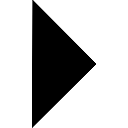
 显示该栏目以下所有产品
显示该栏目以下所有产品
